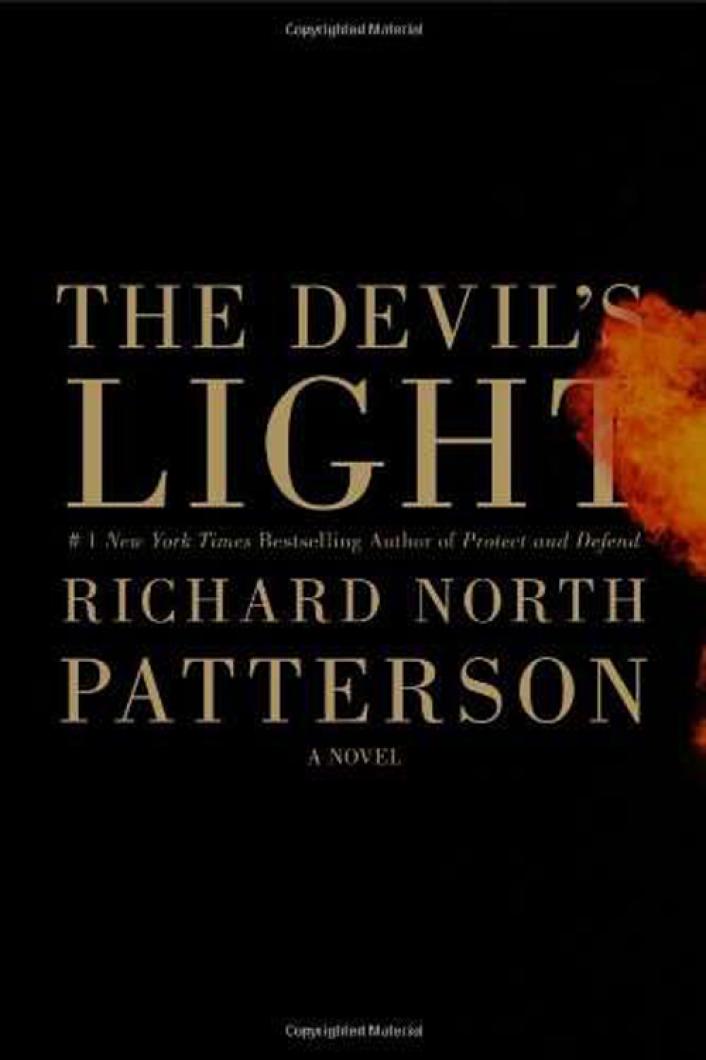The Devil’s Light,> Richard North Patterson, Scribner, a division of Simon & Schuster, Inc., N.Y. 2011, 337 pages, hardcover, $26.
It could happen. It is not un thinkable. The detonation of a nuclear bomb on a major city by al Qaeda 10 years to the day after the Sept. 11, 2001 attack.
This is the premise of Richard North Patterson’s latest novel, The Devil’s Light, a gripping, frightening, page-turning, what-if thriller. Osama Bin Laden announces to the world that the bomb will be detonated on a major United States city. No matter that in reality Bin Laden is dead; such a plot would have been well underway before his demise.
The Devil’s Light is also a layman’s lesson on humanity, politics and terrorism in the Middle East, amid cultures and animosities so old they make the United States look like a hyperventilating puppy.
Part of the story follows al Qaeda strategist Amer Al Zaroor as he plots and executes his plan to steal a nuclear bomb from Pakistan. The extent of Mr. Patterson’s research is breathtaking. His novel, reads the summary, “is frighteningly detailed about how, exactly, a nuclear weapon could be stolen from the Pakistani military and why, exactly, finding and disabling it would be virtually impossible.”
The main character is Brooke Chandler, a bright young CIA operative trapped in a desk job at the agency’s Langley, Virginia headquarters after his Middle Eastern cover was blown by an incompetent boss. His field experience leads him to believe the bomb is headed not to the United States but to Israel. Convincing his superiors of this is no small feat against the backdrop of nationwide panic as the anniversary date draws near. But his argument is strong. To cover their bases, the agency sends him back in the field.
Nothing is as it seems in the underbelly of the Middle East, in the world of espionage, even in matters of love. In graduate school Brooke loved and lost an Israeli woman; his fear for Israel is both political and personal. He has mere days to track the stolen bomb.
The jumble of politics, cultural loyalties and terrorist factions in the Middle East is mind-boggling. Here’s one example of Brooke working his way through his theory: “Still, look at what the parties stand to gain. The military and the ISI can pursue their enmity with India, strengthening LET. The Taliban gets control of huge swaths of Pakistan without having to fight the army. Al Qaeda’s haven becomes much safer. But there’s far more. A lot of Pakistanis loathe their civilian government, not least for its incompetence in the face of last year’s floods. As for Bin Laden, a coup in Pakistan would be a global game changer — a jihadist state. The prize is access to its nuclear arsenal.”
Wow. But in Mr. Patterson’s hands, over the course of the novel, it all makes sense. Scary sense.
The Devil’s Light is more than a good suspense novel. It is an eye-opening look at the Middle East today, a look that is worth taking, not only better to understand an often unfathomable part of the world but also to gain a glimpse of the beauty of its people, the human beings that exist there in a world so different from ours, as well as its stunning geography.
Richard North Paterson is the author of 18 bestselling novels. He is a former trial lawyer and lives on the Vineyard, in San Francisco and Cabo San Lucas.




Comments
Comment policy »